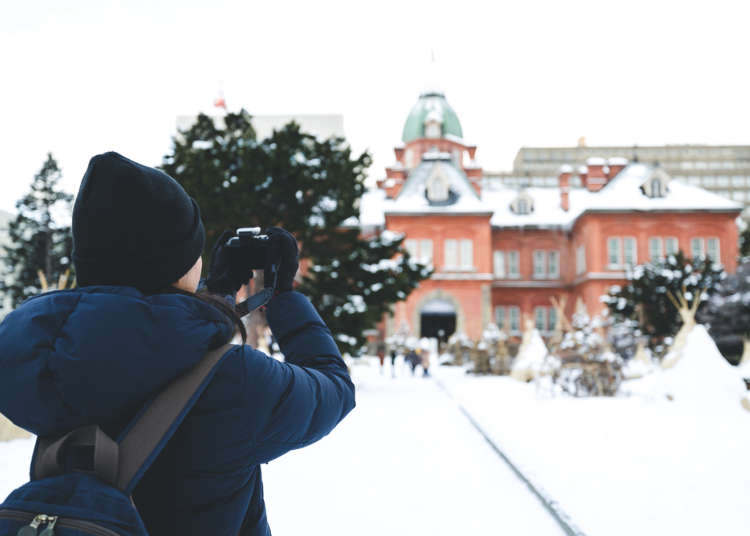
Surviving Hokkaido Winter: 4 Weird Tips From Our Sapporo Staff
- Written by: Minna no Kotoba Sha
As the island is located in the northernmost part of Japan, in Hokkaido winter arrives in no time at all, and is often accompanied by extreme cold and heavy downfalls of snow!
While most people know to check the local weather before taking a trip out there, not everyone knows how to brace for the cold or the snow. Our locally residing editor is here to give you a break-down on the best tips for preparing with the cold, based on personal experience.
Hokkaido Winters Creep In As Early As October
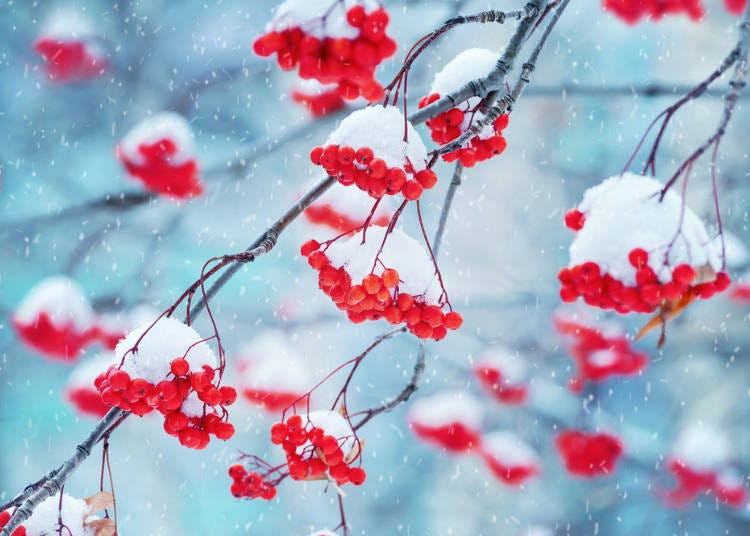
Our editor, having experienced winter in Hokkaido and in Tokyo, tells us that by late October, winter is already in full effect in Hokkaido. In recent years, that period seems to arrive a little later, however the end of October is still considered the average time to expect the first snowfall.
In Sapporo, the early half of October tends to be on the warmer side, with average temperatures of about 11.8ºC. But by November, that average has considerably dropped to about 4.9ºC. From December to February, you can expect temperatures to remain below freezing.
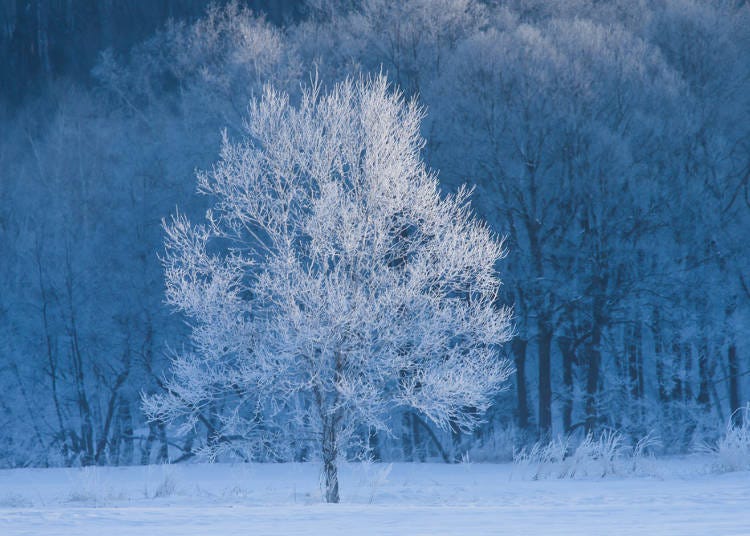
If you want to enjoy the beautiful wonderland scenery of winter in Hokkaido, it is best to be prepared to face extreme temperatures, which can drop to as low as 10-20º below freezing! If you plan to spend a considerable amount of time outdoors, it is advised to wear solid and reliable snow wear.
If you plan to spend most of the time within the city and other sightseeing areas, you may not need to go that far, however, you should still be mindful of what you put on your body. Consider the following points when preparing to travel in the cold.
Tip #1: Be Mindful of Winter Clothing Materials
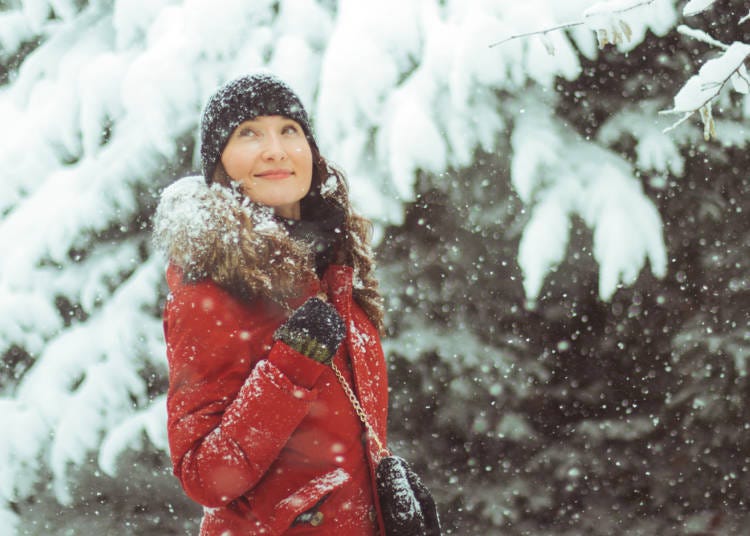
First and foremost are the bare necessities of Hokkaido winter wear: clothing with high heat retention. For outerwear, you'll want to opt for a down jacket or other thick winter coat. And don't forget your bottoms - many people are so focused on what they put on the top half of their bodies, they completely neglect their lower half.
Aim for warm materials such as wool or corduroy pants, and try to avoid materials like cotton and denim, which tends to get really cold!
For women, if wearing a skirt, we recommend tights or leggings absolutely no less than 80 deniers thick, avoiding sheer materials. On especially cold days, go even thicker with 110 denier tights or warmer materials like wool.
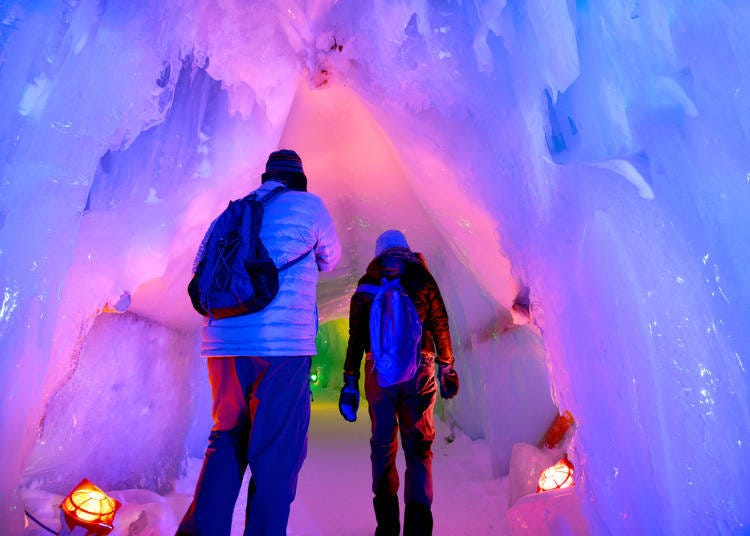
When participating in Hokkaido winter sports and other such activities, it is especially important to take special measures against sweat as well as protection from the cold.
Our bodies sweat as a way of cooling down during intense activities, therefore sweating can make you feel even colder during the winter. To avoid this, you will want to pay extra attention to your innerwear.
One popular tip recommended by the locals is to wear a towel underneath your shirt to absorb the sweat from your back, which you can easily remove or change. Even if you do not plan to engage in strenuous exercise, it is a good idea to pay attention to your innerwear and avoid materials such as cotton, which tends to cool after absorbing sweat.
Tip #2: Gloves, Hats, and Scarves Are A Must!

Key tip number two for protecting yourself from the cold is, avoid exposing yourself to the open air as much as possible. In Hokkaido, the winter air is said to feel more 'painful' than 'cold,' so it is essential to carry around the three basics at all times: a set of gloves, a hat, and a scarf (snood stoles are also OK).
Hats are especially important when it snows. Many people try to get by using only the hood of their outerwear. However, hoods offer no protection for the ears, which are still susceptible to the piercing cold, especially on windy days. If hat-hair is a concern, another option is wearing earmuffs under your hood.
Tip #3: Are Your Winter Shoes Really Winter-Proof?
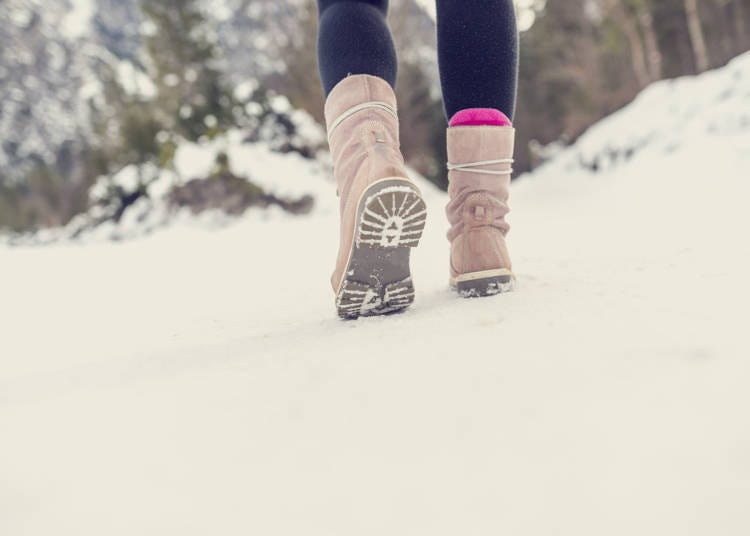
For footwear, you definitely want to opt for boots. Many people swear by Mouton boots, and boots with inner lining. However, there is one pitfall: if you look at the soles of the boot, you will notice that many of them are not slip-proof, therefore offer no protection for walking over ice and snow!
Anti-slip soles that you can attach to your shoes are often available at convenience stores, or you can buy a pair of Hokkaido winter boots that are made for these conditions locally.
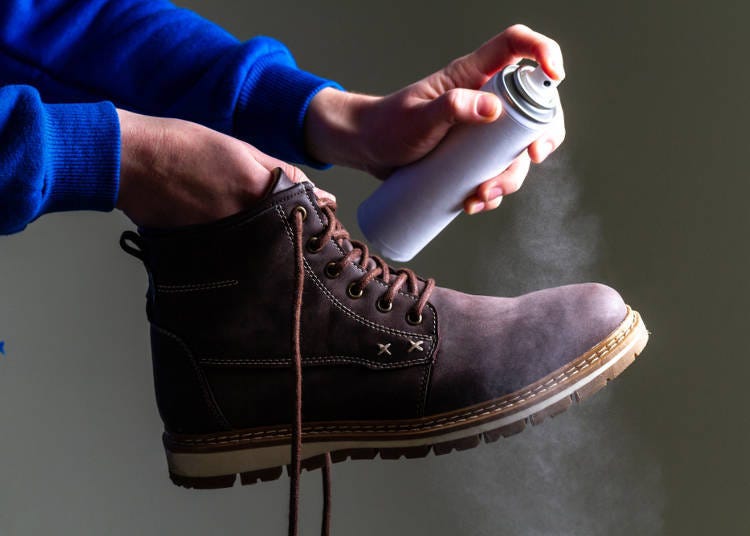
Though the snow in Hokkaido is often said to be smooth and powdery, it tends to leave behind a mess of puddles in its wake throughout the city thanks to road-heating and snow melting agents.
To prevent water from seeping inside your shoes, be sure to waterproof them with waterproof spray before traveling.
Tip #4: Remove Thick Layers Inside Buildings and Transportation!
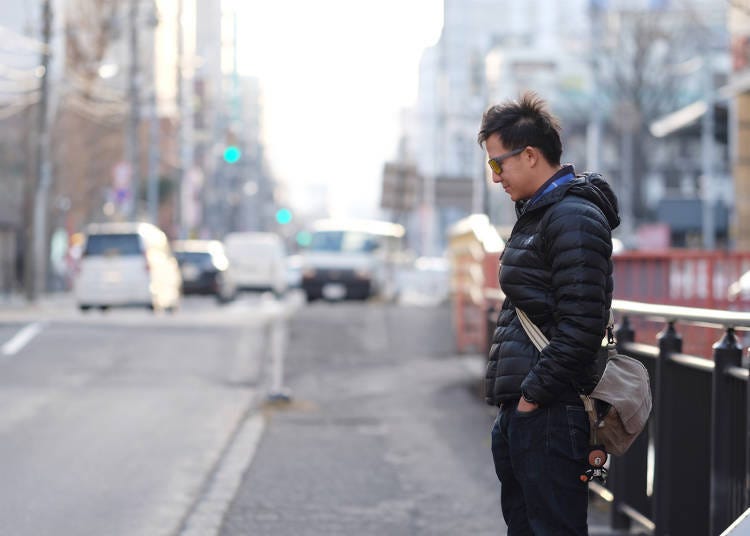
Here is a winter travel tip that is especially important in Hokkaido, and particularly in Sapporo: the sharp temperature difference between indoors and outdoors.
Buildings in Hokkaido are designed with excellent insulation and strong heating. Even on freezing days, indoor spaces such as shops, restaurants, and trains can feel surprisingly warm. Public transportation is also well heated.
Because of this, it is easy to start sweating while indoors or on trains. When you step back outside into the cold, that moisture cools rapidly, making you feel much colder than the actual temperature. This sudden chill can be uncomfortable and may leave you feeling drained more quickly while sightseeing.
To stay comfortable, dress in layers that are easy to put on and take off. This allows you to adjust smoothly as you move between warm indoor spaces and the cold outdoors. Rather than wearing a single thin shirt under a very thick jacket that is hard to remove, aim for multiple lighter layers so you can regulate your temperature throughout the day.
Minna no Kotoba Sha is a production company founded by an editor with extensive experience in editing local magazines in Sapporo. For over 20 years, our team has conducted research and written articles across Hokkaido, with Sapporo as our primary hub. Our diverse portfolio includes the production of various books such as travel guides, informational magazines, and collections showcasing the picturesque landscapes of Hokkaido. Comprised entirely of women, the team at Minna no Kotoba Sha boasts diverse interests, including a passion for travel, culinary delights, and alcoholic beverages. The scope of our communication efforts spans a wide range, covering everything from introducing notable restaurants to providing coverage of local events and sharing stories of leisure experiences.
- Area
- Category
*Prices and options mentioned are subject to change.
*Unless stated otherwise, all prices include tax.
Popular Tours & Activitiess
Recommended places for you
-

Niseko Village Ski Resort
Skiing & Snowboarding
Niseko / Rusutsu
-

LakeAkan
Rivers, Lakes & Canyons
Abashiri
-
Appealing

Mt. Hakodate Observatory
Forests & Mountains
Hakodate
-
Appealing

Rukku and Uohei
Izakaya
Sapporo / Chitose
-

Sapporo Clock Tower
Landmarks
Sapporo / Chitose
-
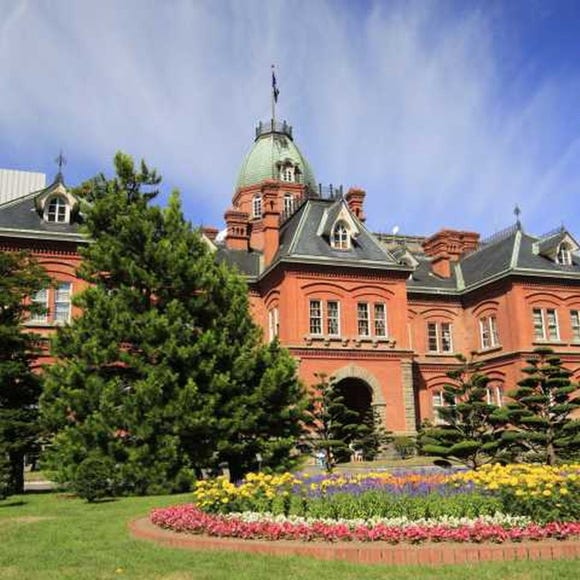
Former Hokkaido Government Office Building (Red Brick Office)
Other Historic Sites
Sapporo / Chitose
-
Ad

Smart Ways to Avoid Crowds and Enjoy a Safe, Comfortable Trip to Noboribetsu Onsen
-
Ad

Welcome to Sapporo! Here’s How to Expore the Ciy Like a Local
-

7 Iconic Hokkaido locations that will make your Instagram shine
by: Himanshi Shah
-
Ad

Sapporo SATUDORA Shopping Guide: Get Souvenirs, Medicine & More at This Iconic Drugstore (Special Deal Inside!)
-

Jozankei Onsen: 10 Luxurious Hotels with Private Hot Springs & Stunning Views Near Sapporo
by: Robotan
-

BIGGEST SALE ALERT! SATUDORA Tax-Free Winter Sale: Stack Coupons for Massive Savings!
by: Guest Contributor
-

Noboribetsu Onsen: 5 Best Things to Do in Japan's Famous Hot Springs Town!
-

Must-See! 10 Fun Things to Do in Sapporo in Winter
-

Hokkaido Lavender Fields: 6 Best Places in Furano to See Japan's Dreamiest Purple Meadows
by: Nobuka Kawashima
-

Local Recommended: 1-Day Itinerary for Enjoying Sapporo's Winter Wonderland (Hokkaido)
by: Nobuka Kawashima
-

Enjoy Hokkaido's Winter Magic: Guide to Snowy Adventures & Skiing
-

6 Surprisingly Cheap Things in Japan
- #best sushi hokkaido
- #things to do hokkaido
- #best ramen sapporo
- #what to bring to japan
- #new years in tokyo
- #what to buy in ameyoko
- #japanese nail trends
- #what to do in odaiba
- #onsen tattoo friendly tokyo
- #daiso
- #best sweets otaru
- #japanese fashion culture
- #best nature furano
- #japanese convenience store snacks
- #best japanese soft drinks
















